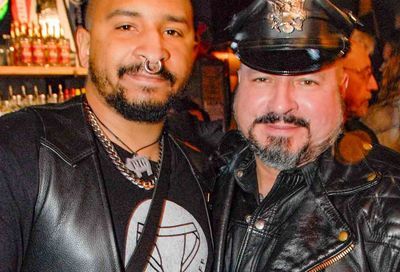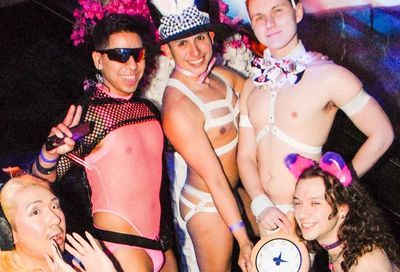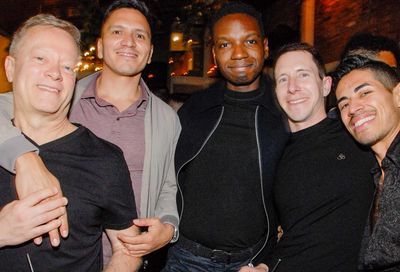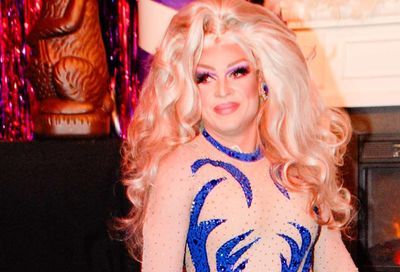A Human Tale
Narendra Jadhav's 'Untouchables' movingly traces a family's struggle to challenge the caste system in India
”Every sixth human being in the world today is an Indian,” begins the introduction to Narendra Jadhav’s family history/memoir Untouchables, an indispensable opening from which I learned more than the many rapt hours I have spent watching Bend it Like Beckham, Bride & Prejudice and Mississippi Masala combined.
The Hindu religion traditionally divides all people into four castes — class designations upon which wealth, religious access and social power are defined — and the Dalit ”untouchables” who are so low that they do not even reach the caste system’s toes. Jadhav, a Dalit himself, provides a concise, extremely readable introduction that opened my eyes to Indian culture, both beautiful and dark, and described the rise of a social and political movement in the last century that is still striving to grant the ”untouchables” their true, human rights.
”Damu was an ordinary man, but he did an extraordinary thing: inspired by Dr. Babasaheb Ambedkar, he stood up against the tyranny of the caste system,” writes Jadhav. ”This is the story of Damu, my father, and Sonu, my mother, as told to me. In their lives and times, you will find my story as well.”
This dedication to father and mother is both the book’s blessing and its curse. Jadhav’s determination to honor his parents sometimes overwhelms the story itself; Jadhav is, perhaps, too deeply loyal to respecting his parents to know where the most compelling story lies.
”Untouchables” alternates primarily between his father and mother’s first person accounts, and while Damu is the ”official” focus of this biography, it is Sonu whose story grounds the tale. Where Damu is presented as a myth-maker, visionary, and activist granting himself ultimate commitment to the Dalit cause, it is Sonu’s telling — ripe with bhakri and sheeral, memsahibs and kumkum — that lends veracity and spice, making Untouchables a far more human tale. Hers is the story of one Indian womanhood, and its combination of ignorance, innocence, and steel is movingly told.
Echoes of a South Asian ”American Dream” abound, and it is one of the book’s most valuable elements — the gift of a new perspective on an old tale. Similarly, there are facts here that will shock many western readers. The mystical, beloved, peace-bringing Gandhi? Not always, it turns out, such a nice man.Much of this book deals with the battle between tradition and acceptance and the need to make, or claim, something better and something new. And yet it is the small moments of nostalgic clarity (Damu describes receiving his first pair of slippers, and of finally being able to provide shoes for his own sons) that resonate.
Advertisement
|
All that said, the novel often seems too long: a too-generous creation myth of the author’s father, of his hardships and triumphs, of the obstacles he surmounted through his (apparently) unflagging force of will.
But then, beauty. Damu’s arrival in Mumbai has a charming, Dickensian quality — a ‘street urchin’ phase, adoption by a wealthy white Gora sahib, a tiger hunt, the fantasy of fair-haired Missybaba. The few chapters that describe the culmination of the family’s (and thousands of Indians’) spiritual and cultural awakening are somehow quietly powerful amidst the madness of the events being portrayed.
Ultimately, this book — novel, memoir, biography — only takes us through the very earliest years of the author’s life, and only in the very last pages do we see the author and his father together in a series of short, deeply loving scenes. Even the modern success depicted in the transcendently grounded epilogue is a clear testament to the success of Damu and Sonu’s long and difficult lives. And that’s an echo for the experience of reading this book — a long, worthwhile slog, with moments of brilliance and joy, toward a payoff that may never arrive and is always difficult to see.
Support Metro Weekly’s Journalism
These are challenging times for news organizations. And yet it’s crucial we stay active and provide vital resources and information to both our local readers and the world. So won’t you please take a moment and consider supporting Metro Weekly with a membership? For as little as $5 a month, you can help ensure Metro Weekly magazine and MetroWeekly.com remain free, viable resources as we provide the best, most diverse, culturally-resonant LGBTQ coverage in both the D.C. region and around the world. Memberships come with exclusive perks and discounts, your own personal digital delivery of each week’s magazine (and an archive), access to our Member's Lounge when it launches this fall, and exclusive members-only items like Metro Weekly Membership Mugs and Tote Bags! Check out all our membership levels here and please join us today!






















